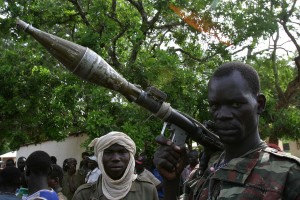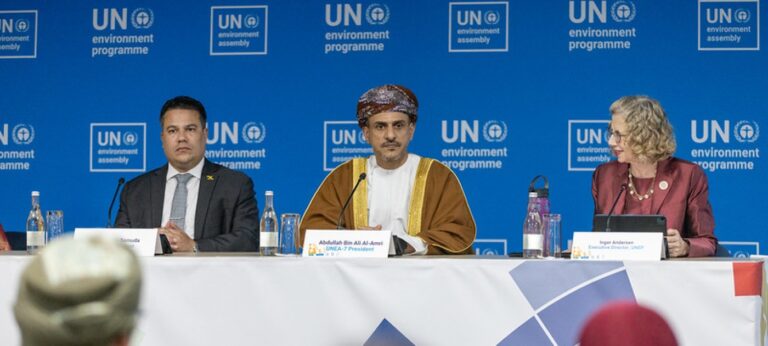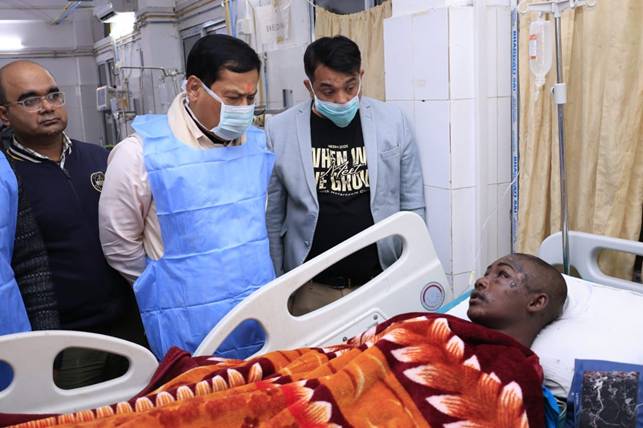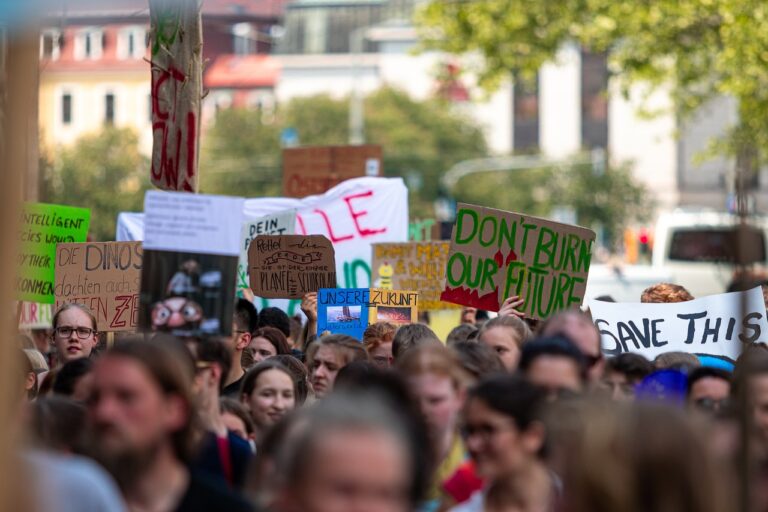
New York: With extreme poverty on the rise amid the COVID-19 pandemic for the first time in more than two decades, senior officials briefing the 15-member United Nations Security Council have called for redoubled efforts to break the “vicious cycle” of poverty, fragility and conflict still devastating many nations. It goes beyond saying that conflict breeds poverty, poverty breeds fragility and fragility decreases resilience to conflict and this becomes a vicious cycle.
The contraction of economic activity in fragile and conflict-affected settings is now expected to push an additional 18 to 27 million people into poverty, the gender equality gap is widening and the climate emergency is exacerbating insecurity.
As it is, as UN Secretary-General António Guterres noted at the UNSC, even before the onset of the COVID-19 pandemic, the global conflict landscape was deteriorating.
According to the World Bank Fragility and Conflict Report, one of every five people in the Middle East and North Africa lives in close proximity to a major conflict. Humanitarian needs have multiplied, reaching the highest levels since the Second World War and the number of people at risk of starvation has doubled.
Consequently, conflicts have become more complex, fuelled by greater regionalisation, the proliferation of non-State armed groups and their links to criminal and extremist interests.
Fragility in the Horn of Africa (particularly in Ethiopia) and the Sahel region (particularly in Niger) has been exacerbated by transboundary threats such as climate change, terrorism, transnational organised crime and the proliferation of armed groups. In the Great Lakes and Central African region, limited State authority, the continued presence and activities of armed groups, human rights violations, illicit exploitation of natural resources and unemployment continue to drive instability. Reports keep coming of violence, murders, loot and displacement of people from these regions.
Issoufou Mahamadou, President of Niger, told UNSC on January 6, 2021 that collective efforts must provide strong support to the Group of Five (G5) for the Sahel Joint Force and must help countries in the region to overcome the deadly violence it currently faces.
It may be recalled that in Niger was much in news as in the first week of January 2021 alone, over 10,000 people were forcibly displaced following attacks on two villages in the country’s Tillaberi region. Many of them had sought refuge in nearby towns. People fearing further attacks were also reportedly fleeing areas around the two villages attacked over the first weekend of 2021. Offering more details on the incident, UN Secretary General Guterres informed the UNSC that in the town of Ouallam about 10,600 people had been displaced and a majority of them found refuge in Mangaize village with host families who were already vulnerable. More than 500 displaced children were now out of school. “Urgent needs include food, protection, shelter and non-food items, health care, water, sanitation, hygiene and education.
“Indeed, fragility is one of the twenty-first century’s greatest challenges, often triggering displacement, violence and corruption. If nothing is done now, more than 80 per cent of the world’s population could live in fragile States,”Mahamadou told the UNSC members. According to him the World Bank and the African Development Bank must be encouraged to do more, including by helping the continent to implement the African Union’s 2063 Agenda and addressing terrorism in the Sahel. Citing current examples, he said 65 per cent of the global population that lacks access to clean water live in fragile States. He pointed out that flows of internally displaced persons and refugees were rising, and the broader impact of COVID-19 threatened to erase development gains.
Today, in the words of Guterres, conflicts have become more complex, fuelled by greater regionalisation, the proliferation of non-State armed groups and their links to criminal and extremist interests.
A case in point is Ethiopia but it is not the only example. Civilians were killed in recent attacks attributed to the Allied Democratic Forces (ADF) – a terrorist organisation originally based in western Uganda – in the villages of Tingwe, Mwenda and Nzenga, near Beni territory in the Province of North Kivu, in the Democratic Republic of Congo, where the ADF has expanded into now.
In Central African Republic, where a civil war is on since December 2012, the United Nations Multidimensional Integrated Stabilization Mission in the Central African Republic (MINUSCA) had to increase its patrols in Bossangoa, in the Ouham Prefecture, after two anti-Balaka factions clashed day before yesterday over the issue of tax collection. UN peacekeepers are continuing their work to protect civilians and maintaining a robust posture, that includes daily patrols, to secure the Bangui-Beloko axis. The Mission’s military troops and police are also working in close coordination with national defence and security forces to secure the capital, including through joint patrols.
In Ethiopia, regional authorities estimate that at least 90,000 people have been displaced due to the conflict there. Food supplies there are very limited, and only locally produced food items are available and at increasing prices. Initial findings by UN agencies indicate a dire humanitarian situation throughout the region with poor access to services and limited livelihoods, as well as urgent needs for shelter, food, non-food items, water, sanitation and hygiene, and provision of health and protection services. Health facilities in major cities were partially working with limited to no stock of supplies and absence of health workers while facilities outside major cities are not operational. It is estimated that more than 222,000 people were internally displaced due to the recent conflict in the Tigray region. This is in addition to 100,000 people displaced prior to the conflict.
The Office of the United Nations High Commissioner for Refugees (UNHCR) said on January 4, 2021 that that it continues to register new refugee arrivals at the Sudanese-Ethiopian border. Some 800 people crossed from Ethiopia’s Tigray region into eastern Sudan in just the first few days of the new year. Since early November, more than 56,000 Ethiopian refugees had fled to neighbouring Sudan.
UNHCR said that more than 30 per cent of refugees are estimated to be under 18 and 5 per cent are over 60 years old. In support of the Sudanese Government, UNHCR and partners continue to relocate the refugees from the arrival locations at the border to the designated refugee camps. A new camp just opened in Tunaydbah, and it has already received some 580 refugees over the past couple of days. UNHCR said that further assistance is critical to improve water and sanitation conditions in the camps, as well as to ramp up COVID-19 prevention measures. Additional funding is also required to sustain shelter projects and improve the living conditions in the camps, especially in anticipation of the next rainy season, which is expected to start in May.
However, the findings of the two joint Government-interagencies’ needs assessment missions that were deployed in Tigray late last year, on 20 December, suggested on January 7, 2021 that life in Alamata, Mehoni and Mekelle in south Tigray was gradually returning to normal, with the resumption of some basic services, including electricity and telecommunications. “Most of the displaced people have returned or are in the process of returning to their homes in those areas. However, most of their belongings have been looted or destroyed”, the South Tigray mission reported, adding that many buildings, including schools, hospitals and administrative offices, have been looted and damaged there.
Citing a recent African Development Bank report, Niger’s President Mahamadou told the UNSC that almost all fragile States have abundant natural resources, reflecting the consequences of poorly managed institutions. He poignantly pointed out that still 65 per cent of the global population that live in fragile States, lacks access to even clean water. “Flows of internally displaced persons and refugees are rising, and the broader impact of COVID-19 threatens to erase development gains,” he lamented. According to him, The World Bank and the African Development Bank must be encouraged to do more, including by helping the continent to implement the African Union’s 2063 Agenda – Africa’s blueprint and master plan for transforming Africa into the global powerhouse of the future within a 50 year period from 2013 to 2063, and addressing terrorism in the Sahel.
The situation is alarming with more and more people pushed into poverty due to the contraction of economic activity in fragile and conflict-affected nations. “If we are to break the cycle of poverty and conflict, we need a more ambitious approach based on two principles enshrined in the Sustainable Development Goals,” UN Secretary-General Guterres said, spotlighting both interdependence and inclusion.
It is time the world realises and takes concrete and tangible steps to prevent and resolve conflict must be driven by the pledge to “leave no on behind”, and the not-yet-fully-realized promise to increase women’s participation in peace processes must be met.
– global bihari bureau





